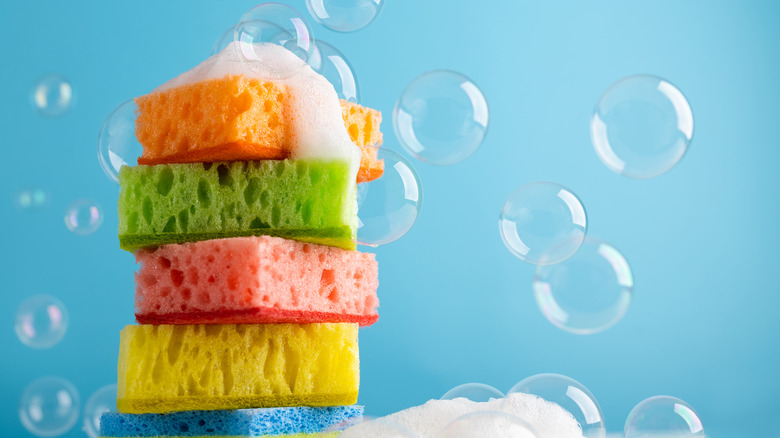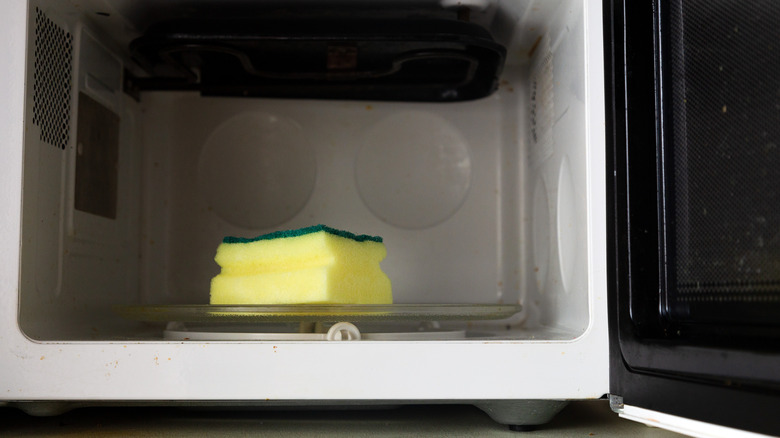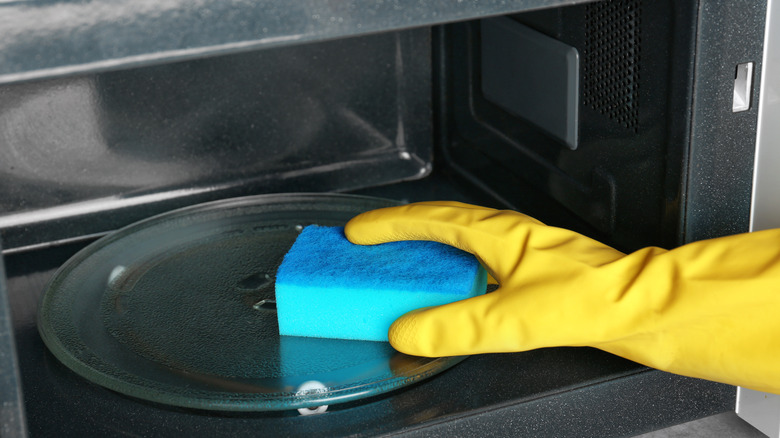The Microwave Trick That Will Disinfect Your Sponges
There is no doubt that a sponge is among the most valuable items for cleaning dishes and other household items. It is a workhorse that gets limited attention as far as cleaning is concerned. Although a sponge is exposed to water and detergents almost every day, you will be surprised just how dirty this item can get. In fact, in the same way a sponge absorbs grime when cleaning dishes, it also acts as the perfect breeding ground for different bacteria. The major reason why it is likely to attract bacteria is that it doesn't get to dry completely.
Jennifer Quinlan, a food microbiologist (via Well+Good), mentions that the wet and warm condition that is common with most sponges encourages the multiplication of different bacteria. So, if your sponge has recently been producing a foul odor, don't be too quick to dump it in the trash just yet. Here is how you can disinfect your kitchen sponge and extend its life using one of the most common appliances in every household, a microwave!
How to disinfect your sponge using a microwave
Before putting just any sponge in the microwave, you need to make sure that there is no metallic component. If you are using a sponge with a metallic scrub, unfortunately, this method isn't for you. However, if you are sure that there are no metals, you can go ahead with the process. Begin by dipping the sponge into a bowl full of water and make sure that it is wet enough. Michigan State University notes that this should help prevent the sponge from catching fire while in the microwave.
Heat the wet sponge in the microwave for no more than a minute on the highest setting. This should be enough to kill any existing bacteria present on your kitchen sponge. Do not be in a hurry to remove the sponge from the microwave just yet; allow it to cool down first. The beauty of this method is that it doesn't involve any use of harmful chemicals; it relies on heat to kill the bacteria existing on the surface of the sponge.
Why this method works
Right off, it is notable that microwaving is one of the most effective methods of sterilizing a sponge. According to Agricultural Research Service, this method kills up to 99.99999% of all existing bacteria, while other methods, like using a dishwasher eliminate 99.9998% of the pathogens. Nuking a sponge in the microwave essentially causes increased vibration of water molecules that ultimately increases the energy levels killing most of the bacteria. Although disinfecting your sponge is the primary purpose of this method, the benefits extend beyond sterilization.
The heat from the microwave will also help eliminate the lingering foul odor that is common with dirty kitchen sponges. Other than that, you also get to increase the life of your sponge, saving you a few bucks that you would have otherwise spent on a new one. That said, how often should you microwave your sponge? While there is no one set frequency for every scenario, it will depend on how often you use it. Nonetheless, for busy kitchens, doing this one-minute hack two to three times a week is ideal, advises Healthline.


